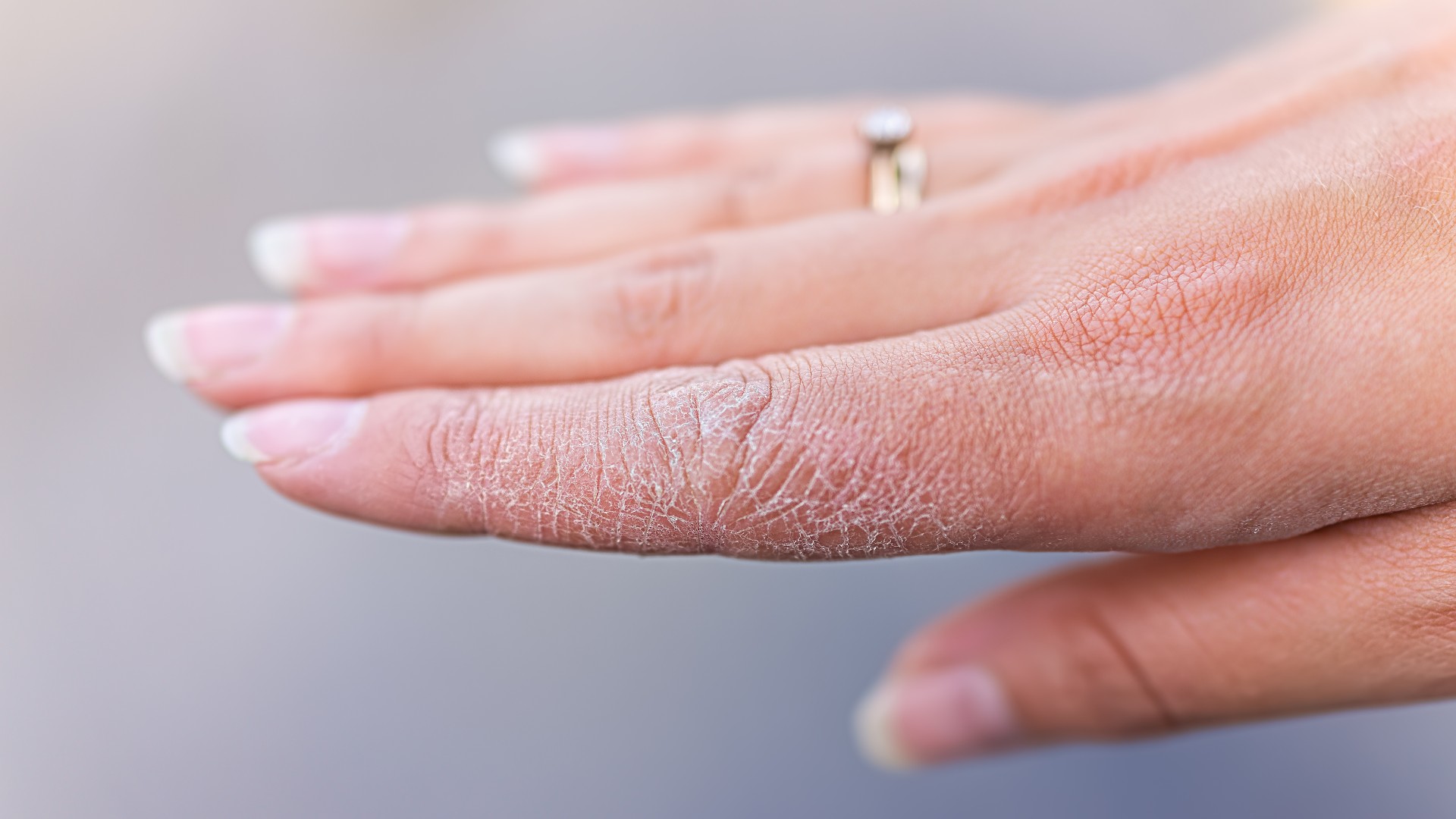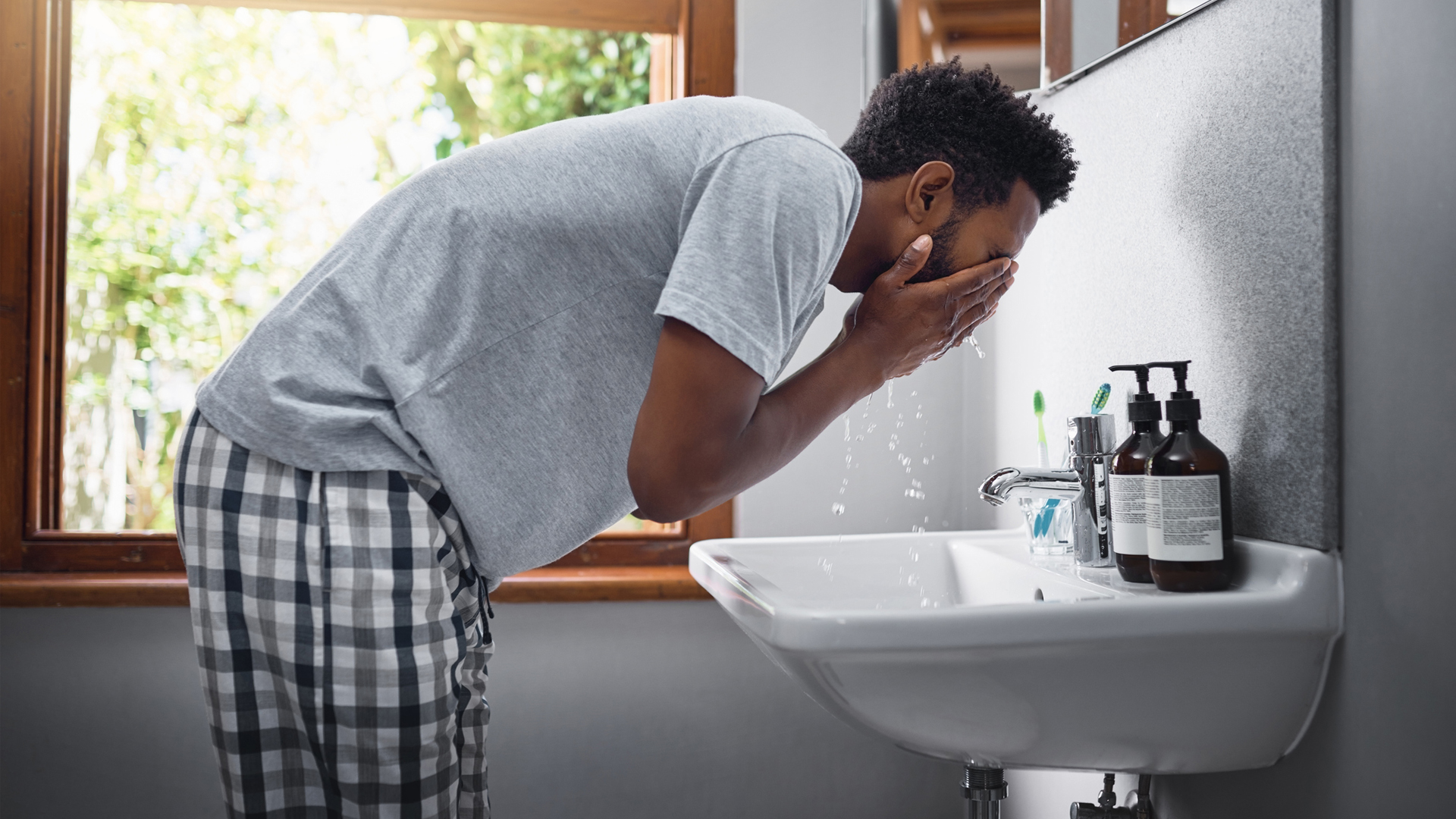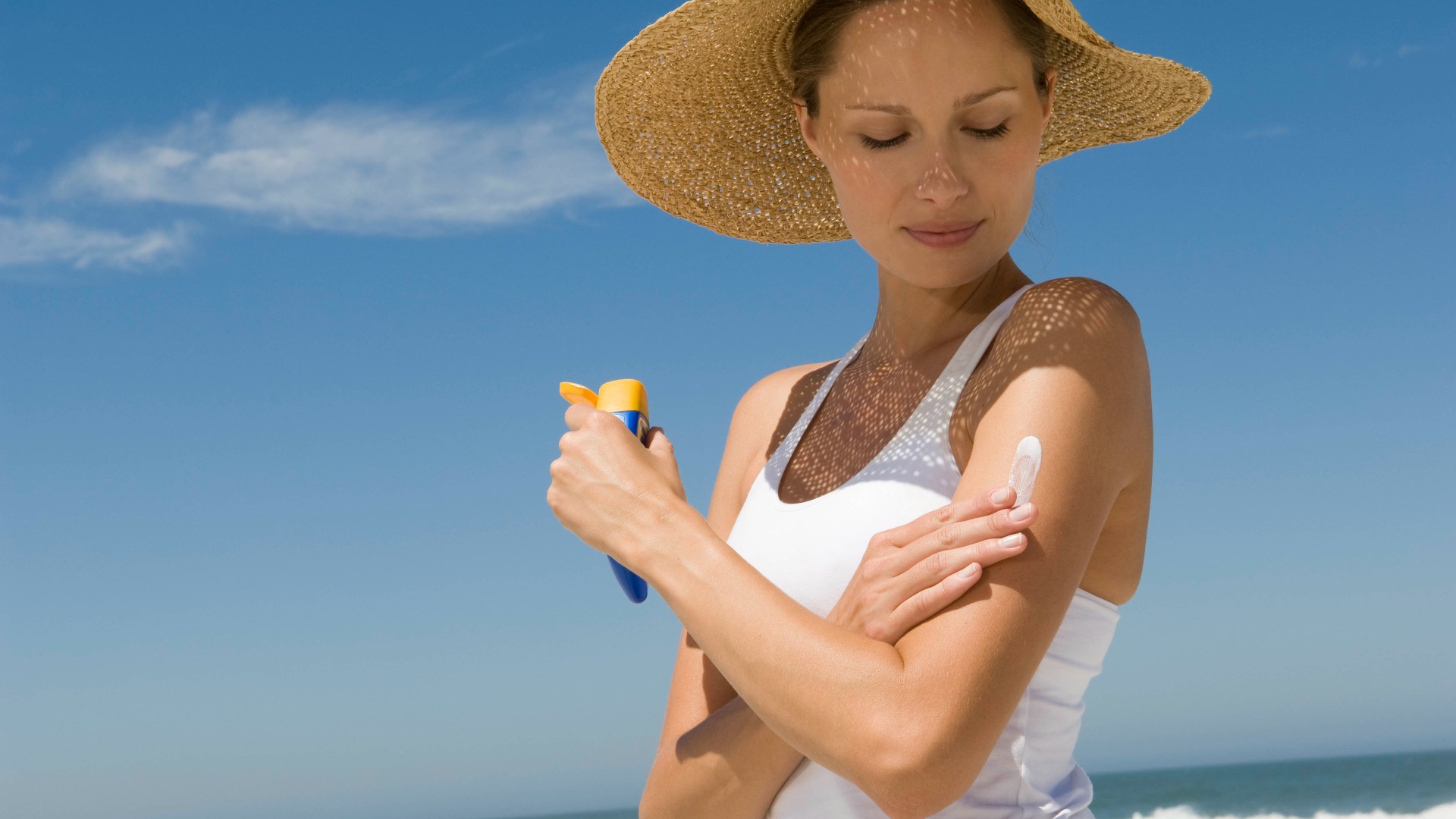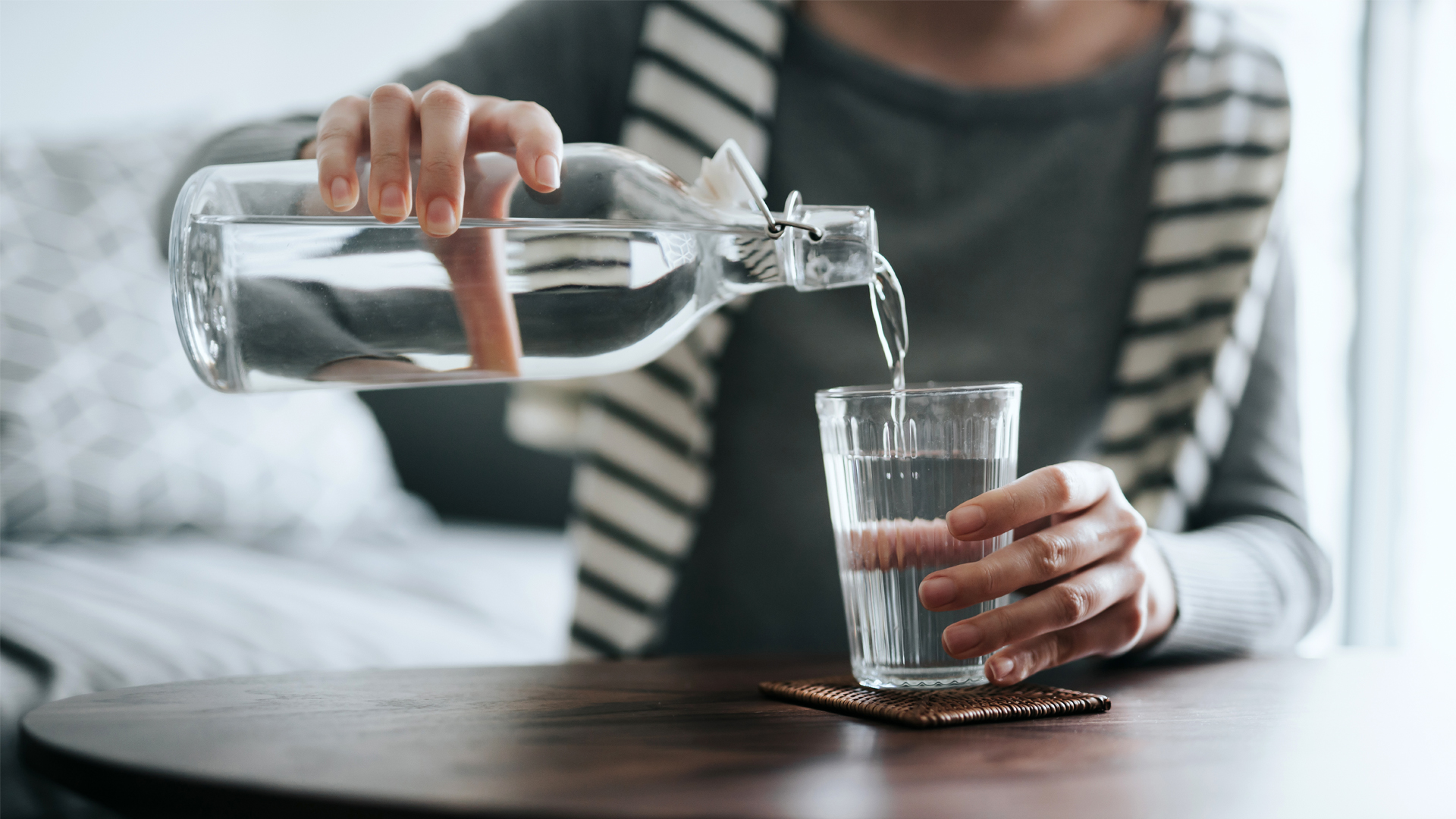How to hydrate skin for a healthy glow
Wondering how to hydrate skin to avoid dryness, cracking and itchiness? We ask the experts

Get the world’s most fascinating discoveries delivered straight to your inbox.
You are now subscribed
Your newsletter sign-up was successful
Want to add more newsletters?

Delivered Daily
Daily Newsletter
Sign up for the latest discoveries, groundbreaking research and fascinating breakthroughs that impact you and the wider world direct to your inbox.

Once a week
Life's Little Mysteries
Feed your curiosity with an exclusive mystery every week, solved with science and delivered direct to your inbox before it's seen anywhere else.

Once a week
How It Works
Sign up to our free science & technology newsletter for your weekly fix of fascinating articles, quick quizzes, amazing images, and more

Delivered daily
Space.com Newsletter
Breaking space news, the latest updates on rocket launches, skywatching events and more!

Once a month
Watch This Space
Sign up to our monthly entertainment newsletter to keep up with all our coverage of the latest sci-fi and space movies, tv shows, games and books.

Once a week
Night Sky This Week
Discover this week's must-see night sky events, moon phases, and stunning astrophotos. Sign up for our skywatching newsletter and explore the universe with us!
Join the club
Get full access to premium articles, exclusive features and a growing list of member rewards.
Figuring out how to hydrate skin is likely top of your to-do list if the cooler weather is already leaving it parched, cracked and itchy. When it comes to skin health, hydration is one of those mystical, highly coveted prizes we all seem to be searching for, but getting the glow without the oily sheen isn’t always easy.
If you have dry skin, keeping it hydrated can be tough. After all, it's never as simple as layering on moisturizer. Skin hydration relies on a number of other factors, too, such as your body's hydration levels and the consistency of the air around you. Our guides to the best water bottles and the best humidifiers are an ideal starting point if you’re looking for things outside of your skincare routine that can positively contribute to your skin’s hydration.
To help you get your glow on, we spoke to several skin experts to get their take on how you can keep your skin looking hydrated and healthy. From applying hydrating serums to avoiding hot showers, here’s everything you need to know.
What causes dry skin?
Dry skin can be an annoying and even painful condition leading to itchiness, irritation, redness and skin cracks. While you may think that skin dryness is caused by a lack of moisture, it's actually caused by a lack of moisture retention. And this is usually caused by genetics or health, not by the products you're using.
"Technically, dry skin is considered a skin type, meaning genetics are the biggest determining factor," says Elizabeth Weiler, dermatologist and Director of Education and Development at OVME. "However, hormones and aging can also cause changes and influence whether skin is dry, normal, oily, or a combination. For example, your skin type might be normal when you’re younger, but due to hormonal changes such as declining estrogen during menopause, your skin type may become dry."

Of course, some people don't have chronically dry skin but still experience skin dryness during the winter or after a hot bath. This is technically known as skin dehydration. "Skin dehydration can affect any skin type, including combination or oily skin types," Weiler explains. "Skin dehydration results from a loss of water in the skin and can give you the feeling of dryness, making skin feel tight or stiff."
So, what is actually going on in the skin when it's dry? "Dry skin happens when the skin has a deficiency of oil or sebum," says Dr. Nadir Qazi, cosmetic dermatology physician and founder of Qazi Cosmetic Clinic in Irvine, California. "Dryness can be a result of stripping the skin of its natural oils, but the dry skin condition is the result from the body not producing enough oil, to begin with.
Get the world’s most fascinating discoveries delivered straight to your inbox.
Moisturizing vs hydrating
If you have dry skin or you are experiencing skin dehydration, you may be tempted to slather on layer after layer of moisturizer. But before you do, it's important to understand that moisturizing doesn't always equal hydration.
"Moisturizing, put simply, is the act of applying a moisturizer — often made up of ceramides, lipids, or occlusive ingredients that help to hold hydration into the skin," Weiler tells us. "Moisturizing helps to prevent the evaporation of water from the skin, known as TEWL, or Transepidermal Water Loss."
On the other hand, she says, hydrating the skin involves increasing the amount of water (or water-binding ingredients) in the skin. In other words, hydrating is essentially about putting water into the skin, while moisturizing is about sealing the water in.
As Qazi puts it, "When you hydrate skin, you attract water into the skin's outer layer, either from the outside or from within. Moisturizing skin forms a barrier on the skin to seal any hydration into it. Both are incredibly important for skin health."
This explains why sometimes, even with plenty of moisturizing, the skin can still feel dry and tight — chances are, you aren't hydrating the skin first.
How to hydrate skin
Here are a few skincare and lifestyle tips that will help you to keep the skin hydrated and moisturized to hopefully banish dryness for good.
Avoid using very hot water when you bathe or cleanse
Let's begin with your skincare routine. Weiler suggests that you stick with lukewarm water while washing the face or showering, as piping hot water can disrupt the skin's sebum balances leading to dryness and dehydration.

Apply hydrating serums or ‘humectants’ followed by moisturizer after washing
After washing your face and body is the perfect time to hydrate and moisturize. Before applying your moisturizer, try a hydrating serum or ‘humectant’. "Humectants hold moisture close to the skin cells, allowing for better absorption, effectively keeping the skin hydrated," Qazi says. "Some examples of humectants are hyaluronic acid and aloe gel. After using a serum, protect the skin from transdermal water loss by sealing humectants next to the skin with a good moisturizer."
Use sunscreen
Sun exposure can lead to dehydration in the skin, so be sure to wear an SPF.

Try adding a cool mist humidifier to your bedroom
"This will minimize water evaporation from the skin as you sleep," suggests Weiler.
Drink plenty of water
Remember, the skin is an organ like any other. While serums before moisturizers can definitely help to lock in water, sometimes the best way to hydrate the body is simply to drink more water. The U.S. National Academies of Sciences, Engineering and Medicine recommends that adults consume 3.7 liters of fluids a day for men and 2.7 liters of fluids a day for women.

Get the recommended amount of sleep
According to a 2019 study published in Sleep, length of sleep can affect your hydration levels, with shorter sleeping times of six hours or less resulting in a higher likelihood of dehydration.
Avoid coffee and alcohol
As Qazi notes, both coffee and alcohol are dehydrating and can affect the dehydration levels of the skin.

See a dermatologist if you are still struggling with skin dryness
While these lifestyle adjustments may help you improve your skin's hydration levels, if you are still experiencing dryness or discomfort, we recommend seeing your doctor or dermatologist who will be able to help you get to the bottom of the problem.
This article is for informational purposes only and is not meant to offer medical advice.

Meg Walters is a freelance journalist and features writer. Raised in Canada and based in South East London, Meg covers culture, entertainment, lifestyle, and health. Her work has appeared in Cosmopolitan, i-D, Refinery29, Stylist, GQ, Shondaland, Healthline, HelloGiggles and other publications.
When she's not writing, Meg is probably daydreaming about traveling the world, re-watching an old rom-com with a glass of wine, or wasting time on Twitter, where you can follow her @wordsbymeg.
 Live Science Plus
Live Science Plus










